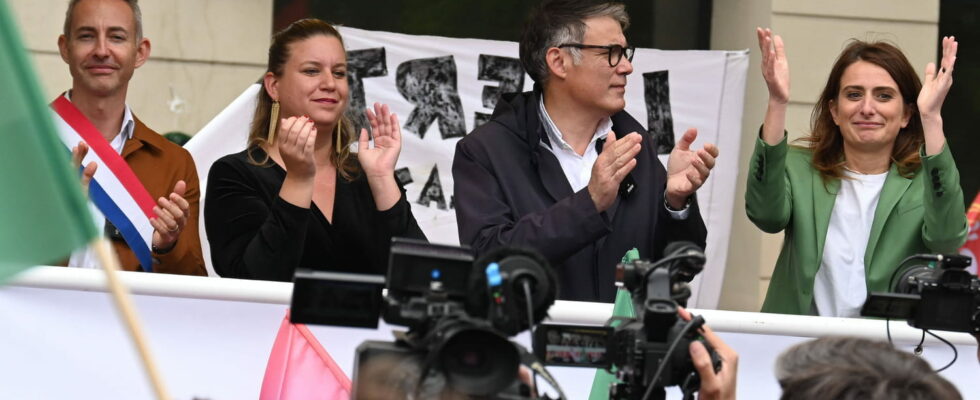If the New Popular Front does well in the second round of the legislative elections, figures from the left could join the government. A left-wing Prime Minister could even be appointed. Who will be called up?
Can the New Popular Front still hope to form a government? For the coalition of the left, the hurdle is high: the National Rally and its allies came out on top in the first round of the legislative elections. On the left, the priority is now to deprive the far right of an absolute majority in the National Assembly, even if it means withdrawing in favor of Macronist or right-wing candidates with a view to the second round. If this objective is achieved, left-wing figures could be invited to join a coalition government.
Here are the two possible scenarios in which the left would enter the government: in the first, very unlikely given the number of constituencies where its candidates are qualified for the second round, the New Popular Front obtains an absolute majority in the second round of the legislative elections. The left would then be relatively free to compose its government and Emmanuel Macron would have to appoint a Prime Minister from its ranks. The identity of this hypothetical head of government has also been the subject of many questions before the first round. The portfolios would in any case be shared between rebels, socialists, environmentalists and communists.
But the second, more likely scenario is that of a relative majority for the RN. In this case, Emmanuel Macron will try to create a coalition government and invite figures from the moderate left, probably socialists, environmentalists and communists, to collaborate with his own camp. The question remains who might agree to work with the French center and right in order to prevent the RN from coming to power.
How to appoint a Prime Minister?
Since the creation of the New Popular Front, its members have been harassed by a single question: who will be a candidate for the post of Prime Minister? For the time being, the left is stalling and postponing this choice until after the elections. Several personalities have expressed their desire to land at Matignon, but none of them are unanimous. In addition, the process for designating this person does not have consensus within the left-wing parties.
The parties seemed to have agreed that the majority group in the Assembly following the legislative elections would propose a Prime Minister to the rest of the coalition. But the First Secretary of the PS, Olivier Faure, then argued for the organization of a vote within the left. An option that does not, however, suit the leadership of La France Insoumise: after having invested the greatest number of candidates within the New Popular Front, the party wants a Prime Minister to be chosen from its ranks.
What names for Matignon?
Several political figures have already announced that they would accept being appointed to Matignon. The rebellious leader Jean-Luc Mélenchon said he was “capable” of it on June 12 on France 2. But this prospect has sparked a storm of protest among his partners, who consider the rebel to be too divisive. “No one can proclaim themselves Prime Minister,” Olivier Faure (PS) and Fabien Roussel (PCF) hammered home in unison. Jean-Luc Mélenchon “is not the leader of the New Popular Front and he will not be Prime Minister,” environmentalist Marine Tondelier told AFP at the same time.
The founder of LFI finally announced that he was “not a candidate for anything” and even put forward the names of several outgoing deputies from his party to occupy the post of Prime Minister: Manuel Bompard, Mathilde Panot, Clémence Guetté, Eric Coquerel and Younous Omarjee. “I can very well be a minister among others or not be a minister at all,” he said on Monday, June 24 on France 2.
At LFI, François Ruffin also claimed to be “capable” of entering Matignon, during an interview on France Blue Picardybefore also mentioning the Ministry of Sports. In turn, the rebellious deputy Clémentine Autain said she was “of course” capable of assuming the post of Prime Minister, on June 14 on South Radio.
On the communist side, the party’s national secretary Fabien Roussel said he was “part” of the candidates for Matignon within the New Popular Front, on June 13 on RTLOn the socialist side, the outgoing deputy Valérie Rabault mentioned the names of Carole Delga, president of the Occitanie region, but also of Clémentine Autain and “why not” herself, as reported by West FranceThe outgoing president of the socialist deputies, Boris Vallaud, for his part took up Jean-Luc Mélenchon’s formula to declare himself “capable” of entering Matignon.
